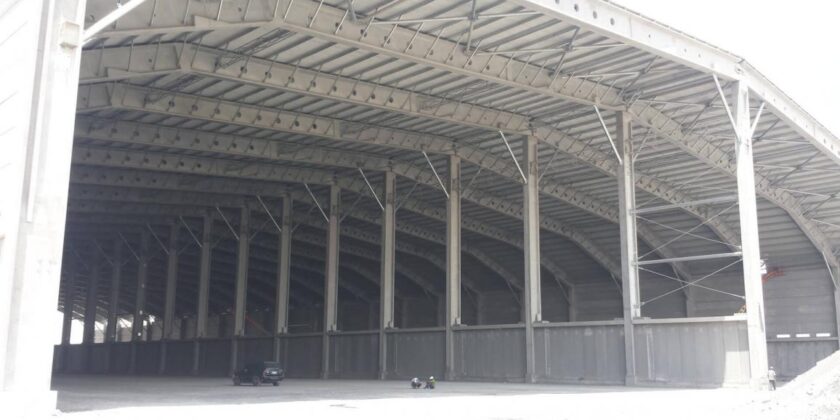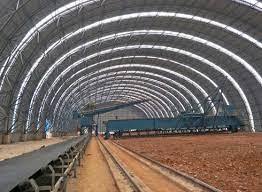Introduction
Clinker storage sheds play a crucial role in various industries, offering a solution to the challenges of storing and managing clinker efficiently. In simple terms, clinker is a nodular material used in the production of cement. The construction of purpose-built storage sheds for clinker brings about numerous advantages, making it an essential component in the industrial landscape.
What are Clinker Storage Sheds?
Clinker storage sheds are specialized structures designed to store and protect clinker from external elements like rain and moisture. Clinker, being a vital ingredient in cement production, requires careful handling and storage to maintain its quality and ensure a steady supply for manufacturing processes.
Applications of Clinker Storage Sheds
- Weather Protection: One of the primary purposes of clinker storage sheds is to shield the clinker from adverse weather conditions. Exposure to rain and humidity can compromise the quality of clinker, leading to clumping and degradation. These sheds provide a controlled environment, preventing moisture-related issues and maintaining the integrity of the clinker.
- Inventory Management: Clinker storage sheds facilitate efficient inventory management. The sheds allow for organized stacking and retrieval of clinker, streamlining the manufacturing process. This helps in avoiding delays and ensures a consistent supply of clinker for cement production.
- Quality Control: By protecting clinker from external elements, these sheds contribute to maintaining the quality standards of the raw material. Consistent quality is essential for producing high-quality cement, and the controlled environment provided by the sheds plays a vital role in achieving this goal.
Benefits of Clinker Storage Sheds
Industrial Benefits
- Increased Production Efficiency: Clinker storage sheds enhance overall production efficiency by providing a dedicated space for organized storage. This, in turn, reduces downtime and ensures a continuous supply of clinker to the cement manufacturing process.
- Cost Savings: Efficient storage and protection against weather-related damage lead to cost savings. The prevention of clinker degradation reduces the need for additional processing or the purchase of replacement materials, contributing to overall cost-effectiveness in cement production.
- Optimized Logistics: The strategic placement of clinker storage sheds allows for optimized logistics. Proximity to production facilities and transportation hubs reduces transportation costs and time, contributing to a more streamlined supply chain.
Environmental Benefits
- Reduced Material Waste: Clinker storage sheds minimize material waste by preventing clinker degradation due to exposure to environmental elements. This reduction in waste aligns with environmentally friendly practices and promotes sustainability in industrial processes.
- Energy Efficiency: By safeguarding clinker quality, these sheds indirectly contribute to energy efficiency in cement production. Maintaining the integrity of the raw material ensures that energy is not wasted on reprocessing or compensating for degraded clinker.
Conclusion
Clinker storage sheds provide a practical solution to the challenges associated with its storage. Their applications extend beyond mere protection, offering industrial benefits such as increased efficiency, cost savings, and optimized logistics. Moreover, the environmental benefits, including reduced material waste and improved energy efficiency, underscore the significance of these sheds in promoting sustainable industrial practices. In essence, clinker storage sheds play a vital role in ensuring the smooth and environmentally responsible production of cement.



